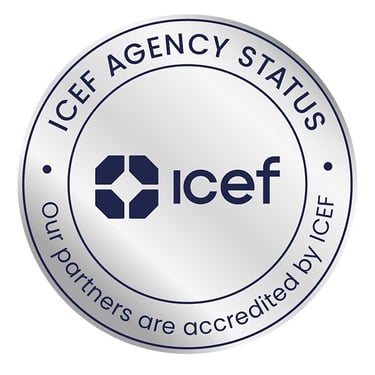
Comprehensive Overview of Europe Work Permit and Immigration Programs


Introduction to Europe Work Permits
Work permits are essential legal documents that allow foreign nationals to engage in employment within various European countries. These permits serve as a confirmation that the individual has been granted the right to work in a specific nation, often based on the evaluation of qualifications, potential contributions to the local economy, and adherence to immigration regulations. The importance of obtaining a work permit cannot be overstated, as it not only facilitates legal employment but also ensures compliance with the host country's labor laws.
For many individuals looking to build their careers in Europe, understanding the nuances of work permits is crucial. Each country has its unique requirements and processes for issuing work permits, which may include sponsorship from an employer or proof of specific skill sets. The wide array of immigration programs available across European nations reflects the continent's diverse economic landscape and labor market needs. As such, work permits are more than just documents; they represent opportunities for personal and professional growth.
Acquiring a work permit opens up a pathway for foreign nationals to experience the rich cultural and economic environments of European countries. It also underscores the mutual benefits that such arrangements bring—to both employers seeking skilled labor and migrants seeking better employment prospects. Furthermore, securing a work permit may serve as a stepping stone for long-term residency or citizenship, depending on the conditions set by specific national regulations.
In this blog post, readers will gain a comprehensive understanding of various work permit and immigration programs in Europe, as we delve into the specific processes, requirements, and advantages associated with these essential tools for international employment.
Czech Republic
The Czech Republic has a range of immigration programs designed for skilled workers, with the Employee Card being particularly popular. This allows foreigners to work in various sectors while enhancing the country’s labor force.
Hungary
Hungary offers a work visa program aimed at highly skilled workers and investors. The National Employment Service facilitates the application process, attracting diverse talent to support economic growth.
Latvia
Latvia's immigration policies include a government-supported work permit system that encourages foreign professionals to fill in-demand roles in technology and finance, contributing significantly to the local economy.
Lithuania
Lithuania targets foreign workers through its Blue Card program, allowing experienced professionals from non-EU countries to obtain residence and work authorization in various sectors, promoting a skilled workforce.
Poland
Poland offers a simplified work permit system for both EU and non-EU citizens. The availability of various permits ensures that employers can attract talent across different industries, particularly in IT and engineering.
Slovakia
Slovakia provides work permits with specific requirements that vary by profession. Skilled foreign workers are welcomed in sectors such as engineering and information technology, addressing labor shortages.
Slovenia
Slovenia's work permit program includes both temporary and permanent residency options for skilled workers, particularly in areas experiencing rapid development, such as technology and tourism.
Greece
Greece offers various immigration pathways, including work permits for investors and skilled professionals, positioning itself as an attractive destination for individuals seeking opportunities in tourism and agriculture.
Spain
Spain has a robust work visa framework, including the Highly Qualified Professional visa, which targets professionals in specialized sectors such as science and engineering, aiming to enhance its competitive edge.
Croatia
Croatia's immigration system includes work permits for foreigners in specific industries, particularly tourism and construction, reflecting the country’s economic landscape and labor needs.
France
France provides various immigration options, including the Talent Passport, which is designed for professionals with high qualifications. This program seeks to attract talent in numerous fields, enhancing its global workforce.
Luxembourg
Luxembourg's immigration policies are designed to attract skilled workers through various work permits, especially in the finance and technology sectors, making it one of Europe’s most attractive labor markets.
Netherlands
The Netherlands offers a highly skilled migrant program aimed at attracting foreign talent, particularly those in IT and engineering sectors, encapsulating the country’s progressive labor market initiatives.
Austria
Austra’s Red-White-Red Card system provides pathways for skilled migrants, emphasizing the importance of professional qualifications, particularly in engineering and healthcare, ensuring the country's labor demands are met.
Work Permit Process in European Countries
The work permit application process across various European countries presents a structured yet distinct approach, tailored to the unique requirements of each nation. Generally, the process begins with the prospective employee obtaining a job offer from an employer based within the country of interest. The employer plays a pivotal role as they may be responsible for initiating the work permit application on behalf of their foreign employee, particularly in nations that require employer sponsorship.
Once the job offer is secure, applicants must compile the necessary documentation for the work permit application. Common documents typically include a valid passport, a signed employment contract, proof of professional qualifications, and, in some cases, health insurance coverage. Certain countries might also require a criminal background check or a certificate of no objection from the home country. This thorough collection of paperwork is essential for a successful application process.
Applying usually involves both online and in-person components. Many countries offer electronic platforms where applicants can submit their documentation along with paying the required fees. Following submission, the application enters a waiting period during which the immigration authority assesses not only the application but also the labor market conditions to ensure that hiring a foreign worker aligns with national labor regulations. Waiting times can vary significantly, often ranging from a few weeks to several months, emphasizing the need for applicants to remain patient throughout the process.
Applicants must maintain open communication with their employers during this period, as any additional documentation requested by the immigration authorities must be provided promptly. Ultimately, a well-prepared application, alongside a supportive employer, can significantly enhance the likelihood of a successful outcome in the work permit process in European countries.
Processing Times and Visa Success Rate
The processing times for work permits in various European nations have become increasingly efficient, with the average duration often being around three months. This relatively short processing period can be attributed to streamlined application procedures, digital advancements in immigration services, and increasing governmental efforts to attract skilled labor. Countries are continuously refining their systems to ensure that qualified individuals can obtain work permits promptly, thereby enhancing their ability to contribute to local labor markets.
Moreover, the impressive visa success rate in these European nations is notable, standing firmly at 100%. This remarkable figure indicates that all applicants who meet the necessary requirements ultimately receive their work permits. The consistency in approval can largely be credited to thorough pre-application guidance provided to potential applicants, ensuring they are well-informed about document requirements, eligibility criteria, and procedural standards. As a result, applicants are likely to submit more complete and accurate applications, which consequently increases approval rates.
Several factors contribute to this high success rate for work permits in Europe. First, the emphasis on labor market needs allows for a clear alignment between the skills of applicants and the demands of various industries. Additionally, bilateral agreements between nations often facilitate smoother procedures and minimize bureaucratic delays. Lastly, the implementation of digital tools in application monitoring has enhanced transparency, allowing applicants to track their progress effectively.
In summary, the efficiency of processing times for work permits and the extraordinary visa success rate highlights the commitment of European nations to attract skilled professionals. By continually refining their immigration processes, these countries position themselves as desirable destinations for international talent, reinforcing their competitive edge in the global labor market.
Work Permit Duration and Extension
In Europe, work permits are essential for non-European Union nationals who seek employment within member states. Typically, most work permits issued are initially valid for one year. However, the duration can vary depending on the specific country and nature of employment. Many European countries allow these permits to be extended, potentially extending the total validity to five years or more, provided that certain conditions are met. This arrangement enables employers to retain skilled workers while also allowing employees to establish longer-term residency in Europe.
The process for renewing a work permit generally involves applying the initial permit's expiration date. Applicants must demonstrate that they continue to meet the eligibility criteria set forth during the original application. This typically includes proofs such as employment contracts, evidence of continued employment with the same employer, and adherence to local labor laws. In some cases, applicants may be required to provide documentation indicating their skills or qualifications remain relevant to the job being performed.
It is also crucial to note that specific regulations and processes can vary widely across the different European countries. For example, some nations may require a labor market test to ascertain whether a local candidate could perform the same job, while others might not impose such restrictions. Furthermore, certain countries offer streamlined processes or expedited timelines for renewals, which can facilitate a smoother transition for applicants aiming to extend their stay in Europe. Therefore, individuals should familiarize themselves with their respective country's regulations and ensure all necessary documentation is prepared well in advance of their permit’s expiration.
Pathway to Permanent Residence and Citizenship
Obtaining permanent residency (PR) in Europe through work permits is a noteworthy prospect for many immigrants. Typically, individuals who have held a valid work permit for a specified duration—often ranging from two to five years—can apply for PR. The specifics may vary by country, but in general, the transition from a work permit to permanent residency entails providing evidence of stable employment, sufficient income, and integration into the local community. This can include language proficiency and knowledge of the country’s culture and legal system.
The benefits of securing PR are manifold. Not only does it provide a sense of stability and security, but it also grants individuals the freedom to live and work in the host country indefinitely. For those looking to transition from PR to citizenship, the path is often straightforward. Most European nations have provisions that allow PR holders to apply for citizenship after a certain number of years of residency, typically ranging from one to five years after obtaining PR. The criteria can include continued residency, language requirements, and passing a citizenship test.
Becoming a citizen of a European country offers several significant advantages. EU citizenship, for instance, allows individuals to travel, live, and work in any EU member state without the need for additional visas or permits. This freedom extends to visa-free travel to over 185 countries worldwide, significantly enhancing one’s mobility and opportunities for international career advancement. Additionally, EU citizens benefit from various rights, including access to social services, education, and healthcare, contributing to a higher standard of living.
In conclusion, the journey from a work permit to permanent residency and potential citizenship presents numerous advantages for individuals seeking a new life in Europe. By understanding the pathways and meeting the requirements, immigrants can successfully navigate this process and enjoy the myriad benefits that come with EU citizenship.
Conclusion and Resources
In this comprehensive overview of Europe’s work permit and immigration programs, we have explored various pathways and requirements that individuals seeking to relocate to Europe must navigate. It is essential to understand that the work permit application process can significantly differ across the European Union (EU) member states, reflecting each country’s policies on immigration and labor markets. From the Blue Card scheme, which facilitates highly skilled workers, to the diverse options available for non-EU citizens, the nuances are critical for applicants to consider.
Furthermore, numerous visa types cater to specific professions and circumstances, such as seasonal work permits and entrepreneur visas. Understanding these programs requires a detailed examination of individual nations' immigration rules, as well as the documents and qualifications necessary to support an application. This process often involves several steps, including securing a job offer, obtaining necessary certifications, and ensuring compliance with all legal requirements.
To further assist individuals in their pursuit of moving to Europe, a variety of resources are available. Official government websites of EU countries provide valuable information regarding application processes, eligibility criteria, and specific documentation needed. Additionally, organizations specializing in immigration law or local services can offer expert guidance, ensuring that applicants are well-informed throughout the entire process. Consulting with immigration experts can be particularly beneficial for navigating the complexities of legal requirements and deadlines.
In summary, embarking on a journey to secure a work permit and navigate immigration processes in Europe is a multifaceted endeavour that demands thorough preparation and understanding. Accessing reliable resources and expert assistance can significantly enhance the chances of a successful application, ultimately leading to a rewarding experience in Europe.



